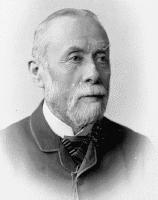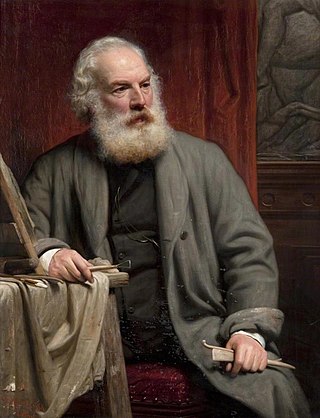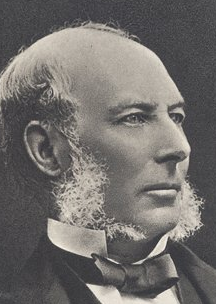
The Dean Cemetery is a historically important Victorian cemetery north of the Dean Village, west of Edinburgh city centre, in Scotland. It lies between Queensferry Road and the Water of Leith, bounded on its east side by Dean Path and on its west by the Dean Gallery. A 20th-century extension lies detached from the main cemetery to the north of Ravelston Terrace. The main cemetery is accessible through the main gate on its east side, through a "grace and favour" access door from the grounds of Dean Gallery and from Ravelston Terrace. The modern extension is only accessible at the junction of Dean Path and Queensferry Road.

Earl of Airlie is a title of the peerage in Scotland created on 2 April 1639 for James Ogilvy, 7th Lord Ogilvy of Airlie, along with the title “Lord Ogilvy of Alith and Lintrathen.” The title “Lord Ogilvy of Airlie” was then created on 28 April 1491.

His Majesty's Solicitor General for England and Wales, known informally as the Solicitor General, is one of the law officers of the Crown in the government of the United Kingdom. They are the deputy of the Attorney General, whose duty is to advise the Crown and Cabinet on the law. They can exercise the powers of the Attorney General in the Attorney General's absence. Despite the title, the position is usually held by a barrister as opposed to a solicitor.

Alexander Hislop was a Free Church of Scotland minister known for his criticisms of the Roman Catholic Church. He was the son of Stephen Hislop, a mason by occupation and an elder of the Relief Church. Alexander's brother was also named Stephen Hislop and became well known in his time as a missionary to India and a naturalist.

John G. Mossman was one of a number of English sculptors who dominated the production and teaching of sculpture in Glasgow for 50 years after his arrival with his father and brothers from his native London in 1828. His father William Mossman (1793–1851) was also a sculptor, and a pupil of Sir Francis Chantrey. He was trained both by his father and under Carlo Marochetti in London.
John Burnet was a Scottish architect who lived and practised in Glasgow. He was born the son of soldier and trained initially as a carpenter, before becoming a Clerk of Works. He rose to prominence in the mid-1850s.

Clan Lumsden is a Lowland Scottish clan.

The 72nd Highlanders was a British Army Highland Infantry Regiment of the Line. Raised in 1778, it was originally numbered 78th, before being redesignated the 72nd in 1786. Under the Childers Reforms it amalgamated with the 78th (Highlanders) Regiment to form the 1st Battalion of the Seaforth Highlanders in 1881.
Sir David James Lumsden is a musical educator, choirmaster, organist and harpsichordist. After studying music at Cambridge he was a church organist, and later an academic. He was principal of the Royal Scottish Academy of Music and Drama in Glasgow from 1976 to 1982 and of the Royal Academy of Music in London from 1982 to 1993.

Charles Wilson was a Scottish architect from Glasgow.
John Sage (1652–1711) was a Scottish nonjuring bishop and controversialist in the Jacobite interest.
Greville Ewing (1767–1841), was a Scottish congregational minister of the Church of Scotland.

James Oswald was a Scottish merchant and Member of Parliament (MP) for Glasgow.
James Bone was a British journalist, most notably London correspondent for the Manchester Guardian for 33 years. He was made a Companion of Honour in 1947. He was also the primary author of 4 travel books, one about Glasgow, one about Edinburgh and two about London.
Events from the year 1783 in Scotland.
Thomas Constable FRSE was a Scottish printer and publisher.

James Lumsden (1778–1856) was a Scottish stationer and merchant who served as Lord Provost of Glasgow from 1843 to 1846.

James Lumsden DL (1808–1879) was a Scottish stationer and merchant who served as Lord Provost of Glasgow from 1866 to 1869. He was known as the Knight of Arden.
James Lumsden may refer to:










